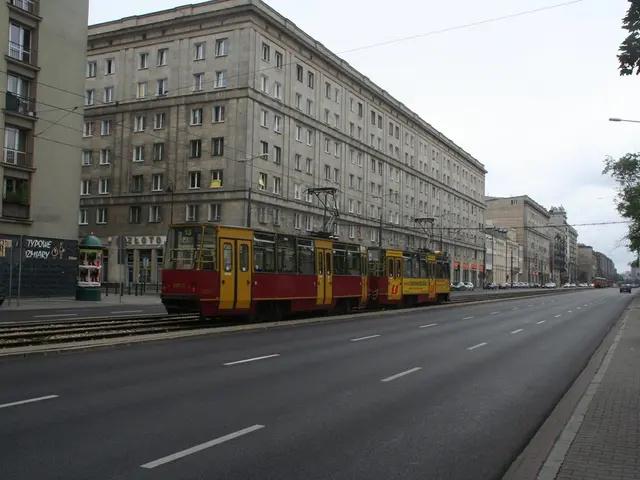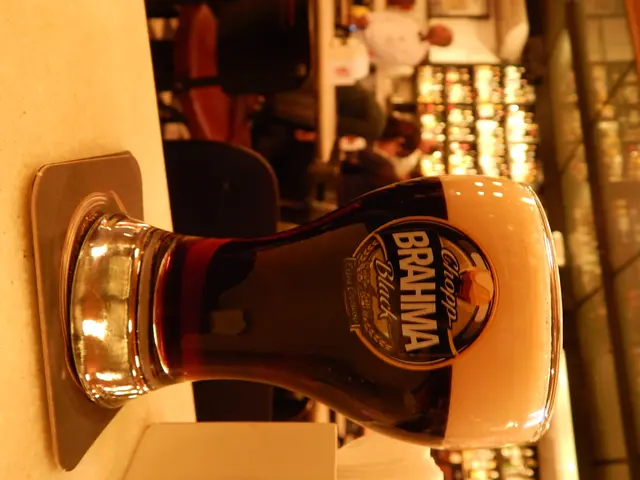Economic leaders in border freight industry embrace green technology at NADBank Conference
Preparing for a Sustainable Border Economy: A Look at Innovative Freight Solutions
In a bid to foster a more sustainable border economy in Texas, Daniel Covarrubias, the director of the Texas Center for Border Economic and Enterprise Development at Texas A&M International University in Laredo, has emphasized the importance of new infrastructure and research.
Meanwhile, across the border, Trayecto, Mexico's largest freight transportation company, is making strides towards a greener future. With over 4,000 trucks and 10,000 trailers, Trayecto currently makes around 14,000 journeys per month between various crossings. Recognizing the lack of government incentives for green transport, the company has taken matters into its own hands, building its own fueling stations to power their trucks.
On the other side of the border, Bali Express Services has launched a "green corridor" linking the Port of Long Beach with factories in Tijuana and San Diego. Last year, this corridor logged over one million clean miles. Bali Express Services is also the first trucking company to operate electric Class 8 trucks across the U.S.-Mexico border, an initiative supported by NADBank financing.
The importance of incentives over penalties in shifting fleets towards lower-emission technologies was a recurring theme at the panel "Driving Growth: Clean and Efficient Mobility Catalyzes Economic Integration", held at the North American Development Bank's 2025 summit in San Antonio. The panel included Covarrubias, Victor Salazar, chief commercial officer at Trayecto, and Jorge Gutierrez Topete, director of Baja California's Institute of Sustainable Mobility.
Gutierrez Topete pointed to the successful financing of Euro 6 clean-energy buses in Tijuana as a blueprint for scaling public and private fleet conversions. He also emphasized the importance of incentives over penalties in shifting fleets towards lower-emission technologies.
Baez, of San Diego-based Bali Express Services, believes that electrification is the way forward and his company is committed to becoming 100% sustainable by 2035 or 2040. Trayecto is also experimenting with natural gas-powered trucks and has grown from five units in 2015 to over 600 today.
The Baja California Institute of Sustainable Mobility in Baja California, Mexico, has implemented incentive measures including subsidies for electric vehicles, development of sustainable transport infrastructure, and educational programs to promote sustainable practices in freight and passenger transport. The Institute also collaborates with U.S. programs across the border in the San Diego region.
A study on electric cargo vehicles is currently being conducted at the World Trade Bridge and the Colombia-Solidarity Bridge to conceptualize smart border entry and potentially reimagine the infrastructure based on technology. These bridges see approximately 16,000 to 18,000 tractor-trailers crossing daily between the U.S. and Mexico.
Panelists agreed that a mix of technologies - including advanced diesel, natural gas, electric, and eventually hydrogen - will be needed to reduce emissions in North American freight. They also highlighted the efficiency gains and smart routing that are closing the gap between the cost of electric trucks and diesel trucks.
In conclusion, the freight industry is taking significant strides towards a greener future, with companies like Trayecto and Bali Express Services leading the way. The importance of incentives, technological advancements, and collaboration between the U.S. and Mexico cannot be overstated in this endeavour.
Read also:
- Stopping Osteoporosis Treatment: Timeline Considerations
- Tobacco industry's suggested changes on a legislative modification are disregarded by health journalists
- Trump's Policies: Tariffs, AI, Surveillance, and Possible Martial Law
- Expanded Community Health Involvement by CK Birla Hospitals, Jaipur, Maintained Through Consistent Outreach Programs Across Rajasthan







